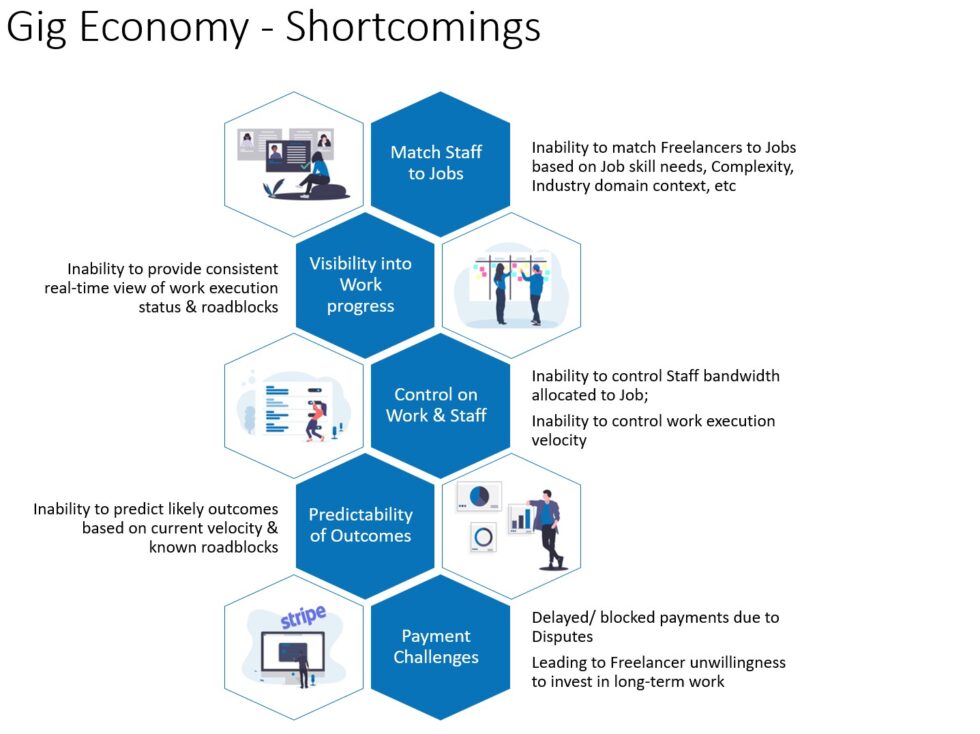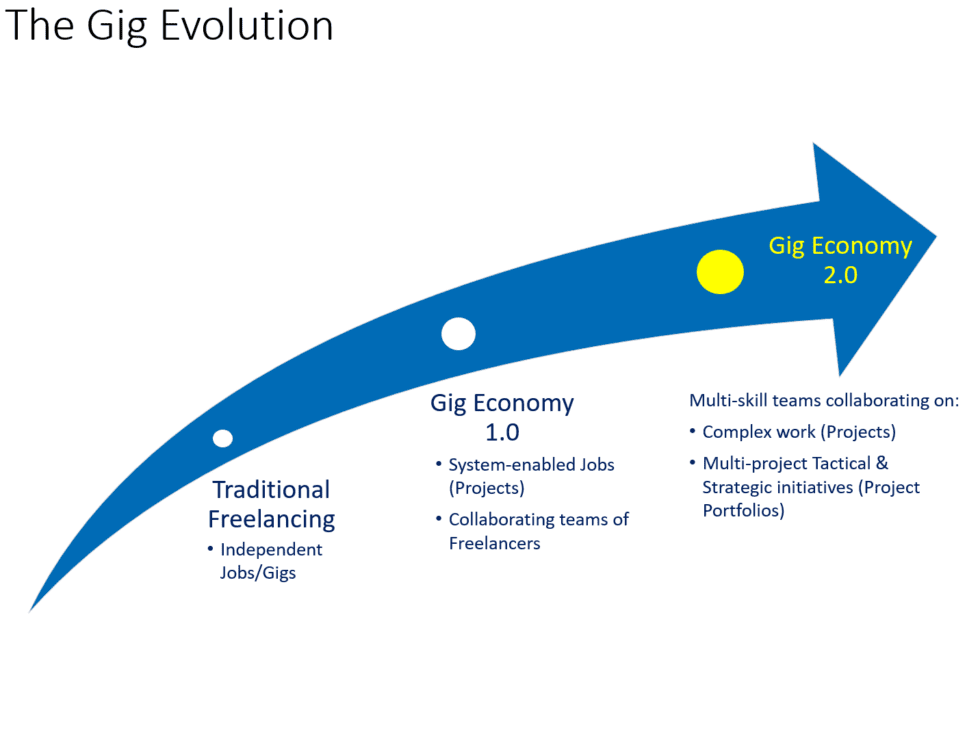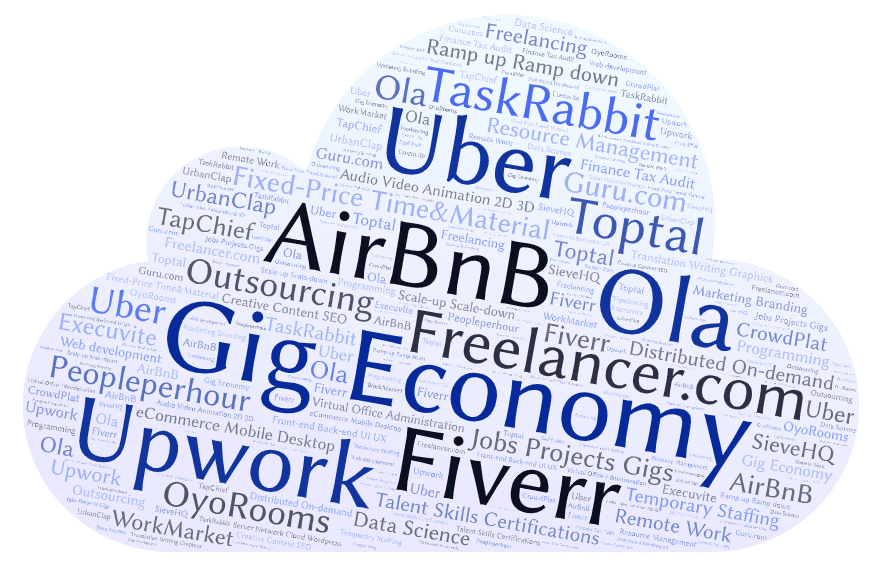Gig Economy 2.0 will enable the evolution from Gigs/Jobs to Complex Work (Projects & Project Portfolios) that require Teams with complementary Skills and need to perform Dependency Management to drive successful outcomes; Thus enabling the disruption of traditional Freelancing & Outsourcing.
Read on to understand more.
Background
Before we move deeper into Gig Economy 2.0, lets examine what Gig Economy is.
According to Cambridge Dictionary, Gig Economy is a way of working that is based on people having temporary jobs or doing separate pieces of work, each paid separately, rather than working for an employer.
Investopedia says that: In a gig economy, temporary, flexible jobs are commonplace and companies tend toward hiring independent contractors and freelancers instead of full-time employees. A gig economy undermines the traditional economy of full-time workers who rarely change positions and instead focus on a lifetime career.
A detailed write-up is available here.
Major shortcomings of the Gig Economy
For Businesses, the inability to execute large/ complex work: The most major descriptor of the work scope covered under the Gig Economy is – Work is typically limited to short-term work items (Gigs/ Jobs) with limited stakeholders. The work is typically performed by a single individual, or infrequently by a team of freelancers. Work planning & execution are manual (in most online freelancing systems), or mostly automated (in platforms like Uber, airbnb, etc).
For Service providers, Career growth: Gigs are not typically conducive to career growth — Gig Service providers tend to provide the same services to new customers, day in & day out.
For both types of stakeholders, Disputes: Potential for disputes is high, with limited ability to effectively track scope elements.
The following image depicts significant shortcomings of Service delivery using the Gig Economy:

Another very interesting take on the shortcomings of the Gig Economy can be accessed here.
So what is Gig Economy 2.0 ?
A natural evolution of the Gig economy is one where more complex work can be performed efficiently, providing transparency to the Customers, and thus instilling confidence in the systems.
More work components & services shall be fully or partially automated, driving improvements in predictability of work completion & work quality.
Work performed shall be more longer-term than in the Gig economy, and Gig Economy 2.0 systems shall offer Service providers the ability to achieve both career growth and financial stability.
The following image depicts a view of the Gig Economy evolution:

Gig Economy 2.0 — Key value propositions
Businesses: Open up complex work streams to freelancing, enabling improvements in efficiency, time to market & talent access, while driving down costs.
Independent Service providers: Access to a wider & longer-term work pipeline; Reduction in payment issues; and Career growth.
Boutique agencies: Enable robust competition by enabling on-demand scale-ups & scale-downs.
Conclusion
The transformation to Gig Economy 2.0 is inevitable.
However, there’s much that we can do to leverage the best value from this strategy, and smoothen its adoption.
For Businesses, Service Delivery Process maturity is critical to its success. All members of the organization should have a consistent set of processes that they use to perform their work and interact with one another as well as with the outside world. Awareness & integration of Service Delivery methodologies such as Agile/ Scrum and Kanban etc would be a great enabler towards achieving success consistently during Service Delivery.
For Service Providers, the ability to lead & leverage Service Delivery methodologies such as Agile/ Scrum and Kanban etc would be a great enabler to handholding their Customers to success, and building Customer stronger relationships as a result.
Here’s a guide for Businesses to improve their value realization from Freelancing adoption – Do you want to safely increase adoption of Freelancing in your Business? Assess your readiness first.
Here’s a guide for Freelancers to drive their perceived value by Businesses – How to grow your Freelancing career in the Gig Economy: A Business perspective.



